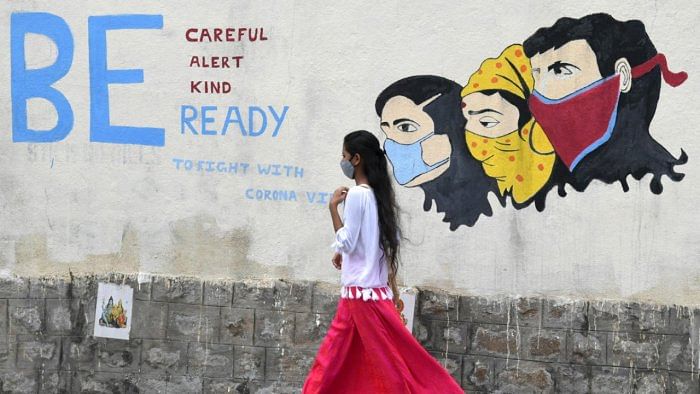
Given the passage of 20 months since the outbreak of Covid-19, it is time to make an assessment of India’s Covid management. The World Health Organisation declared a public health emergency in January 2020 and a pandemic two months later. The first Indian case was reported in January 2020. The lockdown of March-June 2020, announced at short notice and causing enormous human suffering, was imposed under the National Disaster Management Authority (NDMA), with the Prime Minister as chairman and administered by the Union Home Ministry. It was envisaged that under NDMA’s mandate, ministries, states and all agencies would take coordinated action, but the NDMA was rapidly made redundant, its Response Force not deployed even for evacuation of lakhs of helpless migrants from high-density, low-hygiene urban areas. Covid-control was left largely to the states.
Ad hoc-ism and the absence of strategic thinking were revealed from the outset. There was no declared plan for the Centre to coordinate with states with the strict exclusion of politicking. By the end of May 2020, 182,143 confirmed Indian cases and 5,164 deaths were recorded. The Covid crisis was squarely upon the nation.
In other democracies, the political leadership communicated regularly with the public, an outreach strategy often led by the president or prime minister, or at least by health ministers and authoritative public health officials. In the US and UK, there were daily such briefings to guide the public and answer media questions.
By contrast, the Indian political leadership absented itself, except from high profile events such as the South Asian Covid Summit in March 2020 when India laid plausible claim to regional leadership – a status now lacking credibility. The PM as head, and the Union Home Minister in charge of the administrative ministry of NDMA, were not to be seen. Health Ministry briefings were left to a joint secretary, showing lack of gravitas.
India's initial 'vaccine diplomacy' of donations of stocks needed domestically recoiled on the country. India claimed 60% of the world capacity to produce vaccines, but rich countries hoarded vaccines while India was profligate, which cannot be justified by international obligations or competing with China. The global story of vaccines is shocking; as of May 2021, over 75% of all vaccine doses were administered in just 10 countries; in most low-income countries, less than 1% had got even one dose while in the UK and Holland, tens of thousands of doses were discarded due to expiry dates. One million doses were destroyed by 10 American states since last December whereas in India vaccines have been in short supply from the start.
Government messaging on social distancing and masking was inconsistent and irresponsible, blatantly seeking political advantage through events hazardous to health, like religious festivals and election rallies. In this, both Union and state governments have been culpable.
The second wave of infections in April/July 2021 was portrayed in foreign media negatively. Gruesome scenes of burning pyres, floating corpses, and patients fighting for oxygen were more striking than casualty figures in the US, Brazil or Italy. Additionally, notwithstanding WHO's delinking of names of virus mutations from countries of origin, the Delta variant is firmly associated with India. This all-pervasive, highly infectious mutation has a far higher viral load and faster spread, making it most difficult to control or eliminate. In consequence, Indians became pariahs in the environment of travel regulations. New Delhi’s efforts to restore the country's image by presenting the factual position in a hopeful and credible way were absent or inadequate.
New cases run between 40,000 and 50,000 per day over a one-week period, slightly above the US and UK that have much smaller populations. Our total cases of over 31 million lies second only to the US’; deaths at nearly 450,000, in third place after the US and Brazil. And still an ambiance of emergency in mobilisation for vaccination is lacking. Only about 8% or 104 million of the population is fully vaccinated and the target of vaccinating all adults by December 31 is improbable.
It is not only the government that is culpable. Covid ranks low in media priority, often relegated to topics from Pegasus to Shilpa Shetty’s husband. With some laudable exceptions, no electronic or print media gives statistics on daily infections or vaccinations. The Director of AIIMS in Delhi, a virologist from CMC Vellore, and some other experts appear in the media, but these are professionals, not in charge of policy. There is no outcry that the political leadership remains almost invisible. This suggests that media management is superior to Covid management. Opposition politicians who raise objections to mismanagement are met with abuse by the ruling party’s ministers and trolls.
The rise in Covid infections in Kerala and the North-East generates forebodings. If the nation experiences a third wave, we expect visible political leadership, clear messaging, absence of politicking, and less meddle and muddle.
(The writer is a former foreign secretary)
Check out DH's latest videos: